
By:
- Christine Clark
Published Date
By:
- Christine Clark
Share This:
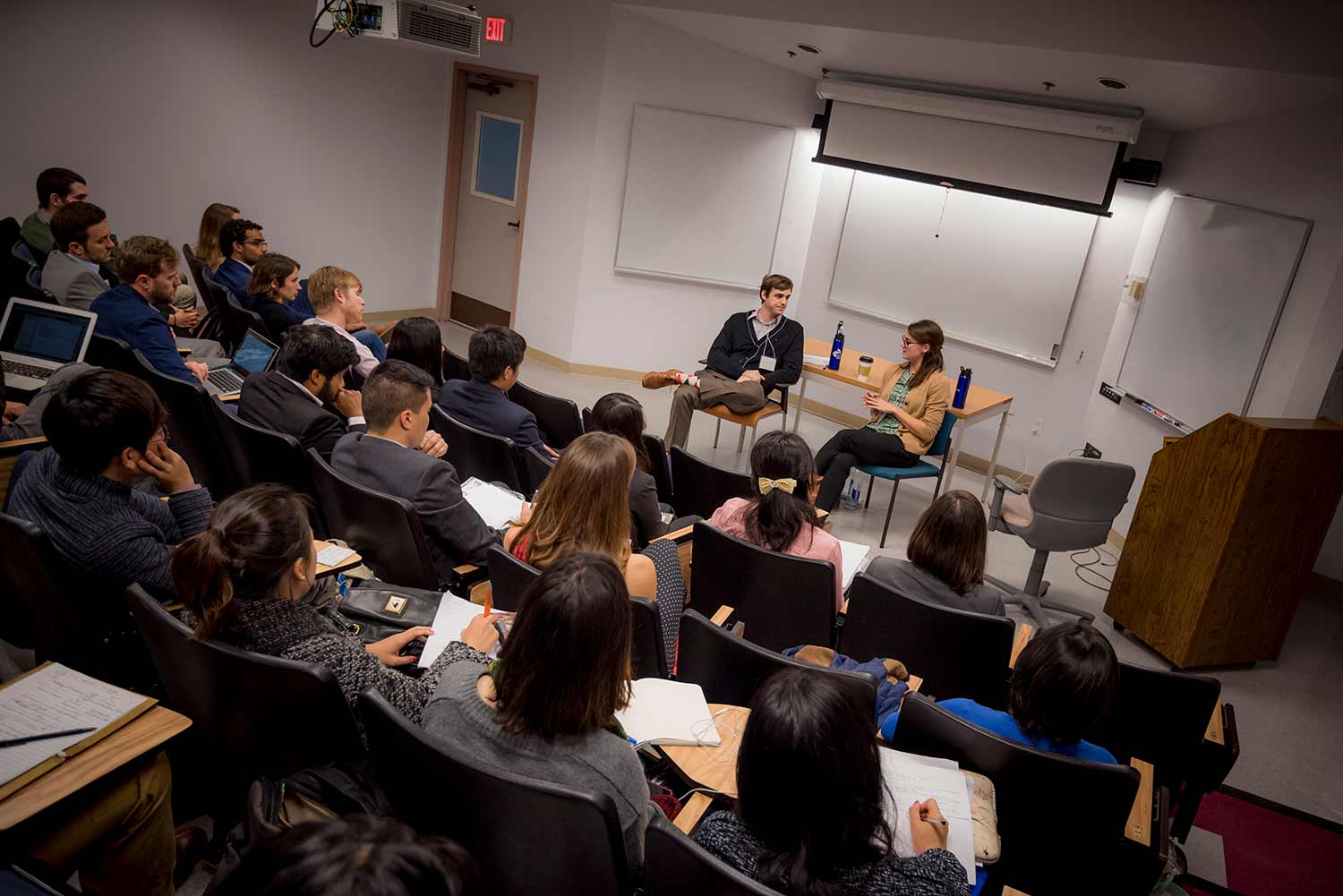
The Masters of Public Policy degree program continues to gain more applicants every year. It prepares students with the skills needed to compare best practices in the U.S., Latin America, Asia and beyond. Photos by Erik Jepsen/UC San Diego Publications
Shaping San Diego’s Workforce: UC San Diego Trains Next Generation of Region’s Policymakers
Leaders from City Council, EDC, Chamber of Commerce, Port Authority, SANDAG and U.S. Senate play critical role in developing new public policy training programs
As attentions turn towards the 2020 elections, voters are considering who will inherit the mantle in local, state and national races. However, when voters cast their ballots, they do not just elect political candidates; they are selecting the teams of policymakers who support them.
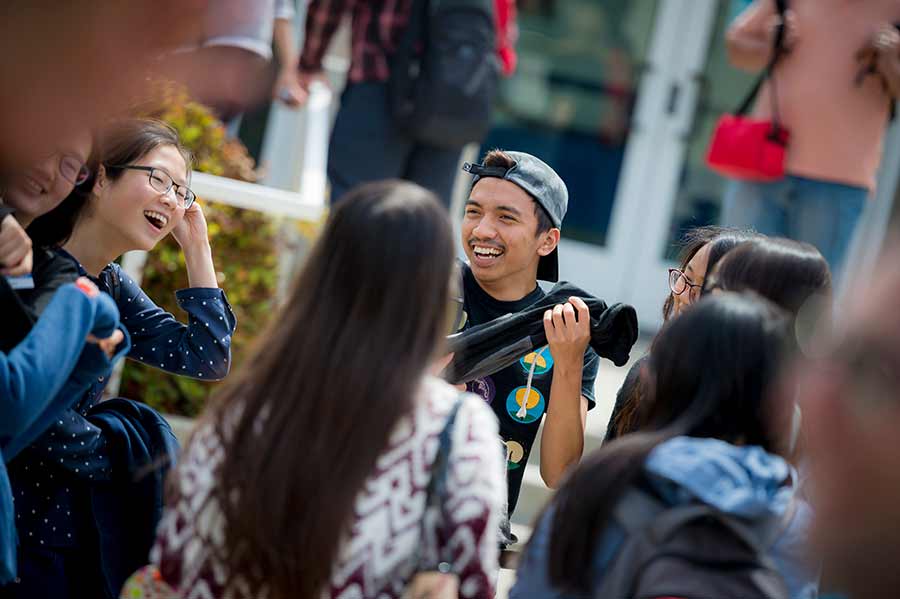
Students the MPP program learn concepts and skills to understand the policymaking framework, consume information intelligently, and deliver rigorous analyses to decision makers.
UC San Diego expects to play a key role in preparing elected officials and their staff across the region with its Master of Public Policy (MPP) degree program. The two-year, professional degree program prepares students for policymaking in an increasingly global business and legislative landscape.
The program was launched by the School of Global Policy and Strategy, which is celebrating its 30th anniversary through August. It equips students with hands-on experience in the public policy realm, provides rigorous technical training, and spurs the development of political acumen to enhance the lives of citizens in San Diego and around the globe.
It is one-of-a-kind in the world, according to the program’s director, professor of political science Zoltan Hajnal.
“There is no other that has the international focus and the analytical and qualitative rigor that our program has,” he said. “And there are few that rival us in terms of the support we give students while they are here, or in their efforts to find meaningful careers moving forward.”
Going beyond the classroom to ensure graduates have the “right stuff” for the city’s workforce
A key component to the MPP program is the Civic Leadership Council, composed of venerable political figures throughout the region, such as: Jason Anderson, CEO of Cleantech San Diego; Mark Caffertty, president and CEO of the Economic Development Council; Sean Karafin, VP of public policy for the Chamber of Commerce; MaryAnne Pintar, chief of staff for Congressmen Scott Peters; Rafael Castellanos, commissioner of the Port Authority; and Victoria Stackwick, head of government affairs for SANDAG, just to name a few. The full list of members can be found on the council’s page.
These local policymakers and business leaders guide the program by reviewing and providing feedback on courses and professional development trainings. The council offers their expertise on what skills the students should have including how they should build their political networks and identifying some of the key issues affecting the city, such as homelessness, housing, transportation and more.
“We designed the new council to meet the needs of our region, its citizens and our students by seeking advice from key stakeholders with the most in-depth knowledge of how our local government actually works,” said Peter F. Cowhey, dean of GPS. “As the region and its pressing issues evolve, so does the need for our leading master’s program.”
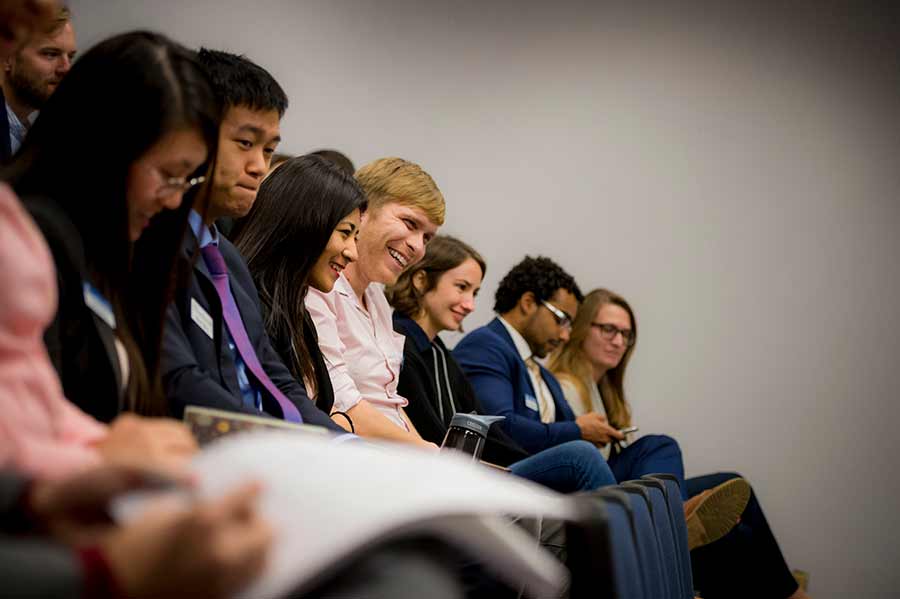
GPS’s reach in shaping San Diego’s workforce and improving the community goes beyond training the future workforce. The school recently launched a Civic Leadership Academy, which provides professional development for locals working in public service and policymaking roles.
Students in the increasingly popular degree program can choose to focus their study on topics like American politics and policy, international business and regulation, or program design and evaluation. In every specialization, graduates are prepared to be experts in analyzing and applying best practices in regulation and policymaking domestically and internationally.
“The program is incredibly impressive,” said Victoria Joes, Civic Leadership Councilmember and director of policy for City Councilmember Barbara Bry who has hired several MPP students as interns.
“One of the things I really love about graduates of the program is they know how to connect the dots quickly and ask the right questions. They have a strong sense of curiosity, which is important, and shows initiative. Students coming out of this program are always thinking about solutions, and not everyone has the skill set to do that,” said Joes.
The MPP program is designed to meet the rapidly growing need for skilled professionals capable of understanding and recommending policy options addressing society’s most pressing problems.
“GPS is really creating a workforce because they are asking, ‘What do employers need and what skills are they looking for?’” Joes added. “The fact that the university cares enough to have these kinds of conversations with its local employers and policymakers is extremely useful, simple and forward-thinking.”
Faculty and students committed to creating more just, equitable societies
“All of us involved in the public policy realm wholeheartedly believe that policy is an important tool to improve the wellbeing of everyone in society,” said Hajnal, a scholar of racial and ethnic politics, urban politics, immigration and political behavior. He recently authored the award-winning “White Backlash: Immigration, Race, and American Politics.”
He added that by studying public policy in a rigorous and systematic way, we can come up with better answers as well as more efficient and equitable policy that can improve outcomes for societies.
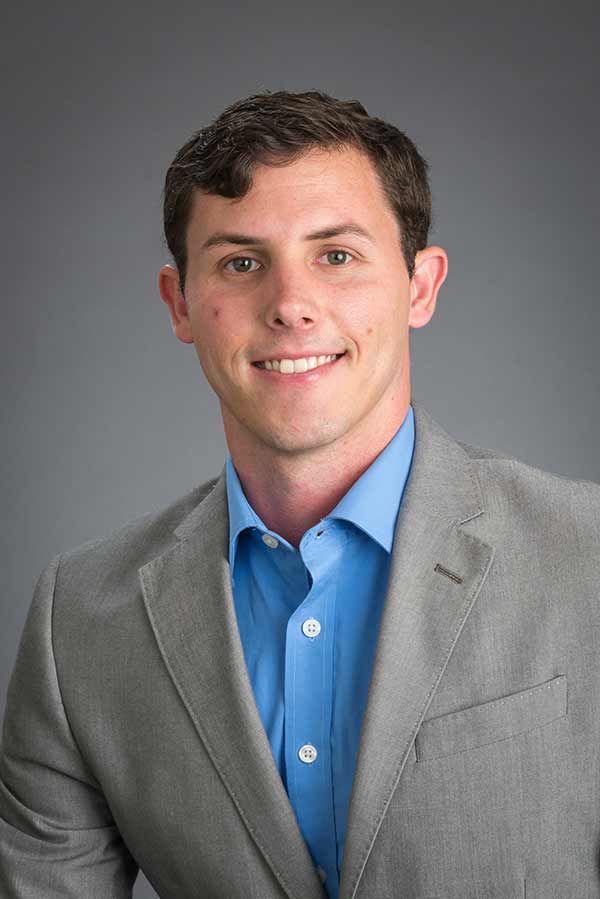
Randy Wilde
Hajnal joined the school’s faculty in 2017 specifically to oversee the new MPP program. His previous appointment was in the UC San Diego Department of Political Science for more than 15 years.
“For me personally it is important to be involved in a community that cares about and is engaged with policy and to be teaching students who are likely to have a real impact on the world moving forward,” said Hajnal.
Randy Wilde is a current MPP candidate and is already making an impact in his community. He was recently elected to the board of the North Park Planning Committee, which advises the City of San Diego on neighborhood land use and infrastructure issues.
“The MPP program was an opportunity to build my core skillset, make new connections and explore various areas of interest,” said Wilde, who also is currently working as an intern for assemblymember Todd Gloria. “I think the combination of project-based exercises and analysis skill-building prepares students to tackle complex problems across diverse issue areas, and is exactly the kind of work that confronts public policy professionals.”
He added that the concepts and skills he learned at GPS will help him understand the policymaking framework, consume information intelligently, and deliver rigorous analyses to decision makers.
Strengthening San Diego’s human capital at all levels
GPS’s reach in shaping San Diego’s workforce and improving the community goes beyond training the future workforce. The school recently launched a Civic Leadership Academy, which provides professional development for locals working in public service and policymaking roles. The aim of the academy is to provide learning opportunities and access to UC San Diego’s faculty and research expertise to address current and challenging topics affecting the San Diego region.
At the March 5 kickoff event downtown, three GPS faculty – economist Joshua Graff Zivin, climate scientist Jennifer Burney, and economist Gordon McCord – spoke to members of the academy about the impacts climate change will have on San Diego, and how the city can prepare with adaptation strategies.
Graff Zivin gave a presentation on how a warming climate impacts worker productivity.
“At our current rising temperature rates, by the year 2100, the U.S. will lose 1.8 billion labor hours every year, that equates to $170 billion in lost wages,” he said. “The financial consequences from global warming are not trivial, and we must think creatively to adapt.”
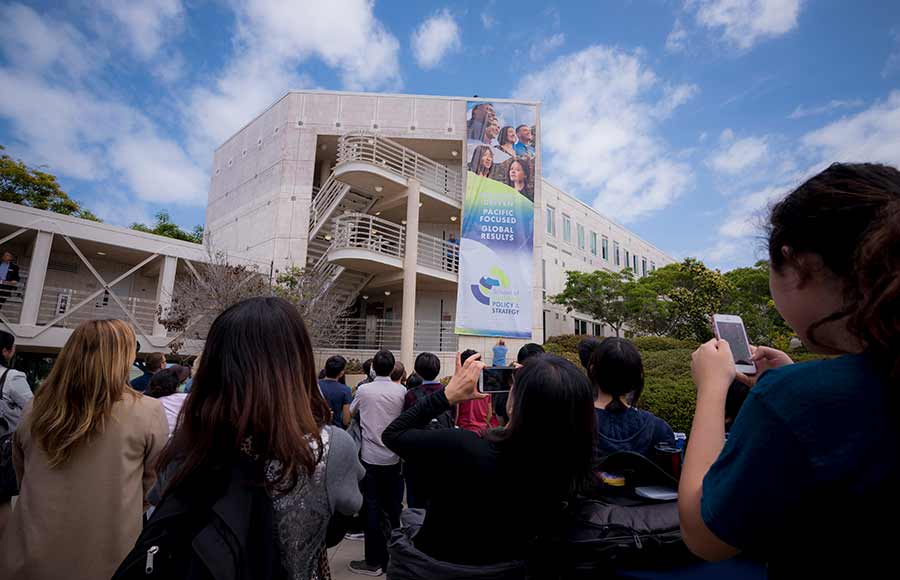
A representative from the San Diego airport authority was at the event and said it was extremely useful, as she was working on the airport’s adaptation plan.
“There is also a lot of research on the impacts hot weather has on cognitive abilities and sleep so I would definitely be thinking about how that’s going to impact air traffic controllers,” Graff Zivin advised. “You would want to make sure they not only have air conditioning in the towers but also in all their experiences leading up to their work shift.”
Jacques Chirazi, a business development manager for the City of San Diego, said the academy will inform more proactive decision making among professionals in local government.
“Typically at the city, we tend to be reactive, whereas an academy like this draws attention to regional problems coming down the pike that deal with public health, food security and labor markets as they relate to climate change,” he said. “With this information, I can educate my leadership team and elected officials and make them aware of these research findings so that we, as public policy practitioners, can use this information to craft innovative public policy for the future.”
Chirazi said he was thankful for the innovative approach the school has taken to share its research with policymakers and the public.
“Traditionally academic research at a university tends to be shared and consumed by other academic researchers,” he said. “I am glad to see UC San Diego taking a different approach to serve the public’s best interest.”
For more information visit the School of Global Policy and Strategy website.
Share This:
You May Also Like
Stay in the Know
Keep up with all the latest from UC San Diego. Subscribe to the newsletter today.


